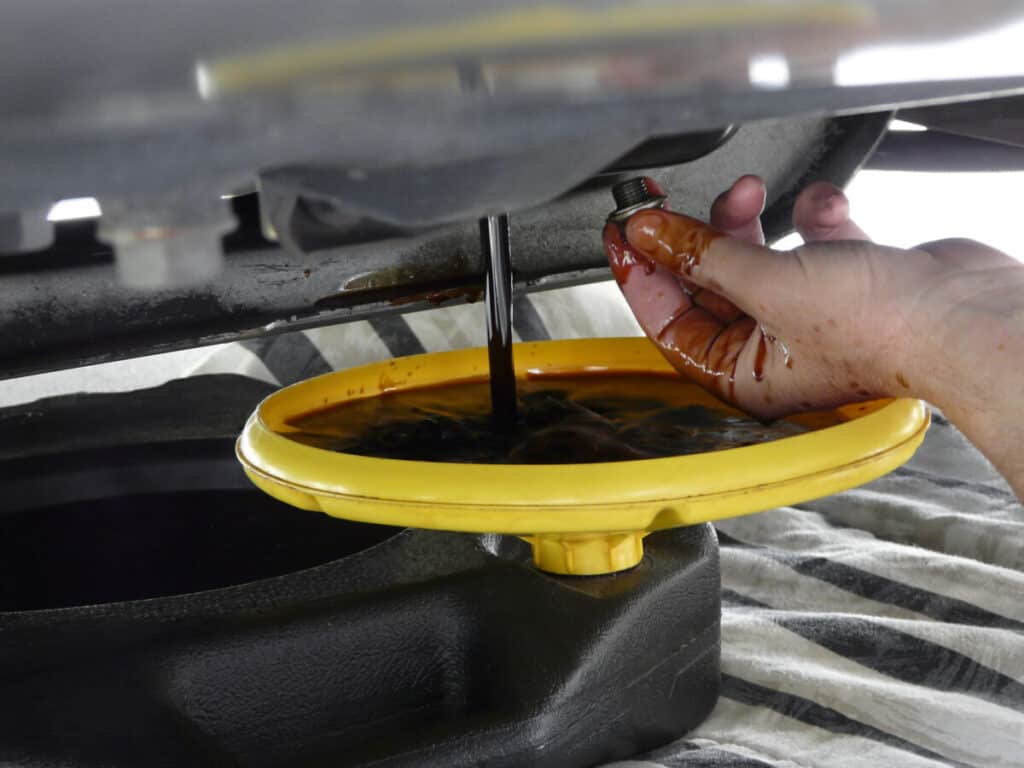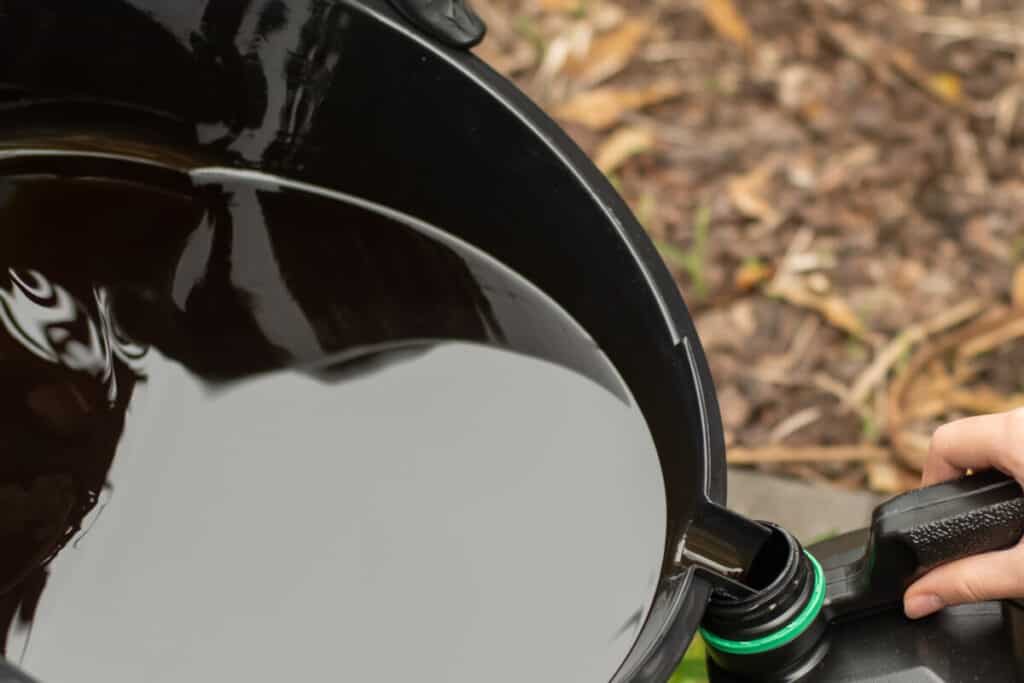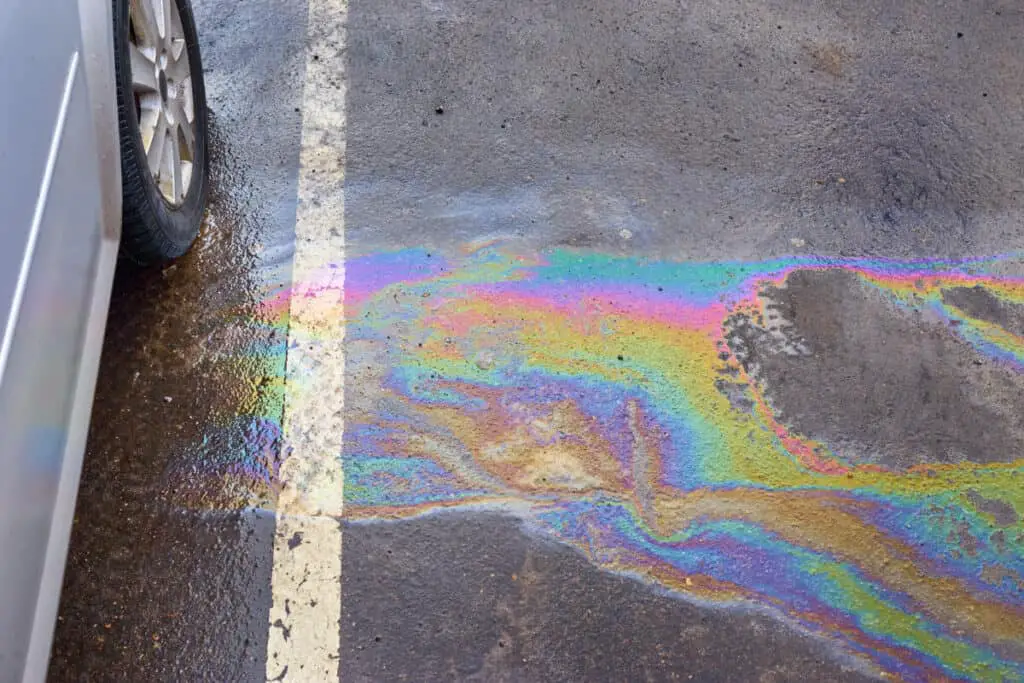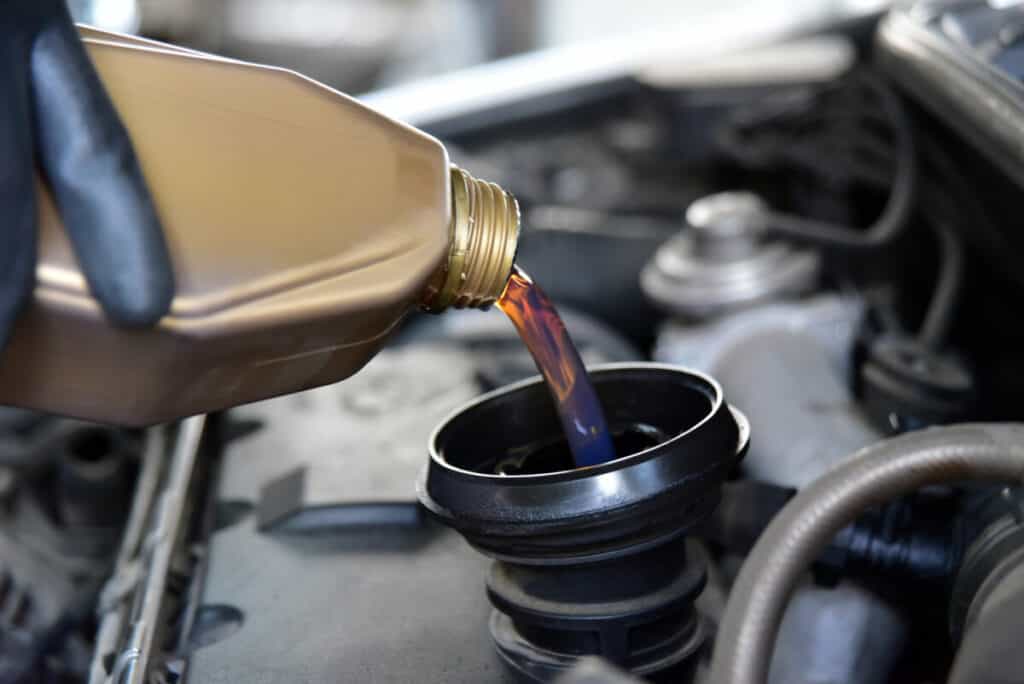
No matter how many oil-change services open, some people will always prefer to change their oil at home. Updating techniques and safety is an important part of this DIY heritage. Appropriately disposing of motor oil is no exception.
The best way to dispose of used motor oil is by recycling. Besides being good for the environment, recycling oil is legally required across most cities and states. The oil can be taken to oil-change businesses to be recycled. Contaminated oil can be brought to hazardous waste disposals.
Disposing of motor oil incorrectly can cause big problems, legally and environmentally. Keep reading below to learn how to do it right!
How to Dispose of Motor Oil
Disposing of used motor oil correctly is required by law, since doing it wrong can have serious environmental consequences. It is really hard to get oil out of the water supply. We’re not robots, and nobody should be drinking that.
Luckily, disposing of it correctly is so easy you could make a two-minute stop between errands and be fine! For somebody willing to spend time changing their own oil, that shouldn’t be a problem at all. You just take the used oil to the local oil change place, whatever brand that may be, and ask them to recycle it. No cost and no pain.
Step One: Collecting the Oil
The first step to recycling the oil is making sure you collect all of the oil. Put down a tarp or newspaper to cover your driveway or garage first, and work from there.
A smart hack is using a drip pan that you can seal up, or one that has an easy pour spout attached. Used oil can be transferred back to the original bottle. Make sure you mark it for recycling so you don’t re-use it by mistake!

Poke a hole in the oil filter so it can drain completely, too. You can even set it up to drain into the pan over the course of a few hours, as long as it and the oil pan are out of reach of kids and pets.
Oil that is mixed with any other fluid, even water, cannot be recycled! Make sure your storage and collection pans have never been used for any other substance. Antifreeze, washer fluid, or detergent will all make the oil non-recyclable.
Step Two: Recycling the Oil
Now that the oil has been collected, you can finish the job in the same afternoon. Call your local service stations and auto part stores to see who accepts used oil for recycling, or search on Earth911 for a recycling location near you. Autozone, JiffyLube, Walmart, and O’Riley Auto Parts are just a few of the locations you can rely on!
Don’t dispose of the oil by dumping it out, throwing it in the trash, or burning it. Remember the EPA’s PSA of “You Dump It, You Drink It.”
What if I Live Far From a Recycling Center?
This is a real concern for some people who live far from town. If you live in the middle of the desert, deep in the woods, or in another place where you can’t just go to the nearest chain auto supply to drop off your oil, what can you do?
Oil can be safely stored in the appropriate containers until your next trip to town. Make sure the bottle or pan is totally secure so it doesn’t leak. When you go to pick up oil for your next oil change, take the previous batch of used oil with you.
It is so important for you to dispose of oil correctly! You do not want to contaminate your land or well water with used oil, since you probably won’t have access to cleanup or other help that you would need. Even a spill on the driveway should be dried with cornmeal or kitty litter before being swept up and disposed of. Be careful out there!
How to Dispose of Motor Oil That’s Been Mixed with Antifreeze or Other Contaminants
Recycling oil that has been contaminated can ruin the entire batch of used oil, so be careful when you’re storing and draining your oil! Remember that no other fluid should be mixed with your oil. This includes water, antifreeze, gasoline, brake fluid, and other liquids that are in and around your car.
If you do have oil that has become contaminated, don’t panic and pour it into the trash. You still need to dispose of this safely and legally. Label the bottle carefully so you don’t reuse or recycle it by mistake. When that’s done, bring it to your local hazardous waste disposal and let them handle it.
If you can’t dispose of it immediately, store it in a cool and dry place where it won’t be tipped over or spilled before you can take it to the hazardous waste disposal.
What Happens to Oil that is Incorrectly Disposed of?

Did you know that just one quart of used motor oil can contaminate a quarter of a million gallons of water?
Yes, really. You do not want to pour that stuff out on your lawn. Used motor oil contains toxins like lead, arsenic, chromium, cadmium, benzines, dioxins, and polycyclic aromatics, and those are also going to seep down to the water supply or stay in the land. It will kill weeds, yes, but it will also kill anything else growing on your land for years to come. Motor oil is not fertilizer.
Cancer Risk
Contaminated soil and water contain carcinogens, and those don’t just wash away. Drinking contaminated water, breathing fumes on a hot day, inhaling dust blown off dirty soil, and even eating produce grown in that dirty soil can all increase the risk of cancer. Don’t use motor oil to kill weeds and then try to grow a garden there a few years later.
Children are especially vulnerable to this because they’re smaller and still growing. Exposure to carcinogens will stay with them. Think about your land’s future before deciding to pour oil there anyways.
Dead Plants
Motor oil kills plants for years after it’s poured on land. It might kill that nasty weed, yes, but you’ll end up with an even nastier bare patch. Using motor oil to kill other things, like trees, can land you in a lot of legal trouble for several reasons.
Even if it does do what you wanted it to do, like killing stumps or obliterating the weeds in your yard, using motor oil as weed killer is a dangerous decision. Read about the toxins and carcinogens listed above before deciding if you really want all of that seeping on your lawn.
If that doesn’t convince you, keep reading below to learn more about the legal repercussions of using motor oil on your lawn. It isn’t just a “you” problem.
Legal Repercussions for Improperly Disposing of Oil

Pouring used motor oil on your lawn is illegal across almost the entire United States and across much of the rest of the world. Since it has such a long impact, ranging from contamination in the water supply to leaving toxins spread through the soil, it isn’t the kind of thing a person has the freedom to do without repercussions.
Even disposing of motor oil in the trash can or pouring it down the drain can have severe legal consequences if you get caught. Remember, one quart of used oil can contaminate 250,000 gallons of water. The environmental impact of used motor oil is huge.
With that in mind, “Legal Repercussions” here don’t just mean a little ticket and a slap on the wrist. Illegally disposing of even a small amount of oil can end with fines in excess of $25,000.
Consequences of illegally dumping oil, even on your own property, can include:
- Jail time
- Paying for Cleanup Efforts on the contaminated land
- Community service
- Fines
- Confiscation of vehicles used to dump oil
- For repeat offenders, felony charges and prison time
If those don’t sound serious enough, you can check out some state-specific laws around dumping used oil. Texas, for example, gives a fine from $1,000-$50,000 for illegally dumping oil, along with five years of prison for every day that the dumping happened.
Connecticut might seem better, with a fine of $219 for anything larger than a cubic foot of contamination, but they’ll also charge you for cleanup. That cleanup can cost up to $25,000 a day. If you’ve been dumping oil for a few years, that can turn into a hefty fine.
When the alternative is just taking a bottle of used oil to the local auto shop, doesn’t that seem like a better option?
But Motor Oil Came From The Earth! Why Can’t I Pour it Out?
Crude oil, not motor oil, is what comes from the earth. It is natural, but it isn’t something you’d usually find in the water supply or on lawns. Crude oil comes from deep, deep under the ground, or from areas without a lot of other life. Tar Pits aren’t where locals like to live. Even an unrefined crude oil spill can have disastrous consequences for the environment.
Motor oil, on the other hand, has been extensively refined. Saying that motor oil is natural and can be returned to the environment as fertilizer is a little like saying birds should be able to eat gummy worms as a primary food source. It just doesn’t work out that way.
The good news is that recycling motor oil allows us to reuse a non-renewable resource! There is a limited amount of crude oil available, but motor oil can be cleaned and reused an unlimited number of times. Recycling oil doesn’t just avoid harming the environment. It also actively helps by reducing our reliance on new oil.
Can’t I Just Toss it in the Trash?
No, used motor oil cannot just be tossed into the trash. Even when it’s fully contained, like when it’s in a sealed bottle, used motor oil still has the potential to contaminate things. That bottle can be crushed. Even contaminated oil needs to be handled by professionals.
Besides that, throwing away the bottle of oil removes the opportunity to recycle it. Since motor oil doesn’t change as much as it just gets dirty, it can be reused as soon as it gets clean! Don’t waste the opportunity to get that oil back in circulation.
Legal fines can apply to anyone who is found to be disposing of their used motor oil in the trash. Of all the things to get fined for, this seems like a sad one. Isn’t it easier to just drop the oil off in the right place?
What Happens to Recycled Motor Oil?

A few things can happen to recycled motor oil, but all of them are good. They all involve cleaning up that used, dirty motor oil and turning it into something useful and new.
Something that’s easy to visualize is the difference between converting crude oil to motor oil and cleaning dirty motor oil. While it takes 42 gallons of crude oil to produce just 2.5 quarts (0.625 gallons) of lubricating oil, you only need one gallon of dirty oil to produce that same 2.5 quarts of clean oil. That is a 41-gallon difference! It saves energy, effort, and time to clean oil instead of pumping and refining new oil.
If you’re worried about the performance of this freshly cleaned oil, don’t be! Re-refined oil works as well as, or even better than, virgin oil standards. Every major car manufacturer approves of using re-refined oil in their cars. When the oil needs to be changed, you can recycle it again!
Recycling motor oil like this helps bring down the price of oil while also reducing our reliance on foreign oil. Since the re-refining and cleaning process can be done locally, the oil doesn’t need to be shipped, imported, or bought overseas. Recycled oil is as good for the economy as it is for the planet.
Whether the oil goes to help heat a family’s home, produce electricity for your city, or lubricate a new car’s engine, you can feel good about your choice to recycle. After all, it’s as easy as dropping off the can at the store. You’re disposing of oil correctly and helping the environment on the way.
Related Topics:
If you like the article above, here are some other similar articles you should check out!
How Much Does it Cost to Dump a Sink?
